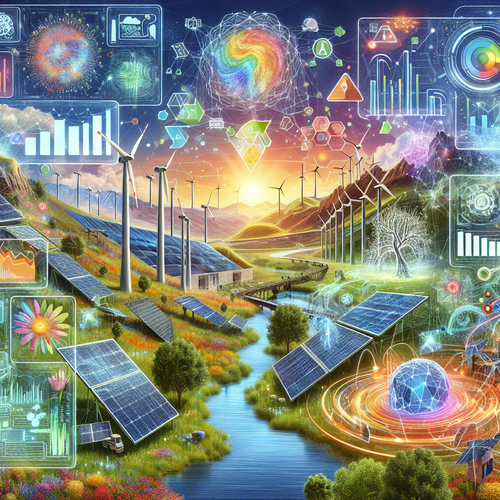
The Role of AI in Climate Change Mitigation
The Role of AI in Climate Change Mitigation
As the world grapples with the escalating effects of climate change, innovative solutions are crucial. Artificial intelligence (AI) has emerged as a powerful tool in the fight against climate change, helping organizations and governments manage resources effectively and promote sustainable practices. This article delves into how AI can contribute significantly to climate change mitigation.
Understanding Climate Change Challenges
Climate change poses severe challenges globally, including rising temperatures, extreme weather events, and loss of biodiversity. Traditional approaches to combating these challenges often fall short due to complexity and scale. AI offers insights and automation that can enhance efforts to mitigate these effects.
Optimizing Energy Consumption
- Smart Grids: AI can analyze energy consumption patterns, allowing for more efficient management of power grids. By predicting peak usage times, AI helps in balancing supply and demand, reducing energy waste.
- Predictive Maintenance: Utilizing AI in renewable energy sources, like wind turbines and solar panels, can predict failures before they occur, ensuring continuous energy production and minimizing downtime.
- Building Efficiency: AI-driven platforms can optimize heating, cooling, and lighting systems in buildings, significantly reducing energy consumption.
Facilitating Sustainable Practices
AI technologies are being used to promote sustainability across various sectors. In agriculture, AI-powered tools help farmers optimize water usage and reduce pesticide reliance, leading to more sustainable practices. These tools can analyze soil health and weather patterns to inform better farming decisions.
AI in Environmental Monitoring
AI applications are also essential in tracking environmental changes. Using satellite data, machine learning models can analyze deforestation rates, track wildlife populations, and monitor air quality. This data is invaluable for researchers and policymakers aiming to protect ecosystems.
Challenges and Ethical Considerations
While the benefits of AI in climate change mitigation are promising, challenges exist. Ethical considerations, such as the environmental impact of AI technologies and data privacy, must be addressed. It is essential to develop AI solutions that prioritize sustainability and social responsibility.
The Future of AI in Climate Action
Looking forward, AI is poised to play an even more critical role in addressing climate change. Innovations such as carbon footprint tracking tools and climate modeling systems based on AI are in development. These technologies could lead to better-informed decisions that support sustainability efforts.
Conclusion
As climate change continues to threaten our planet, leveraging AI’s capabilities may hold the key to innovative solutions. By optimizing resources and introducing sustainable practices, AI has the potential to be a game-changer in climate change mitigation. For more on how AI influences technology across various fields, check our previous post Harnessing the Power of AI for Enhanced Data Analytics.












